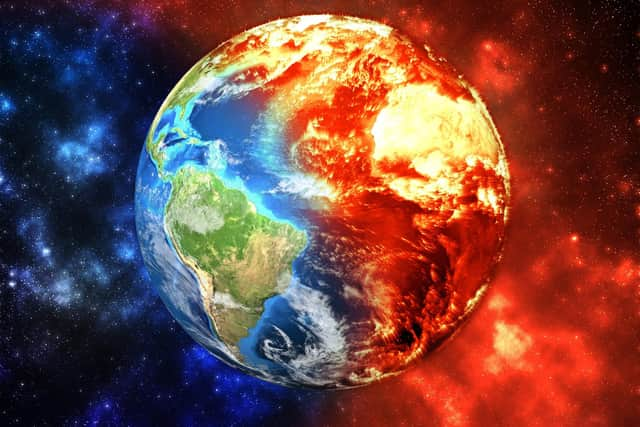In a recent report by CNN’s Laura Paddison, it was revealed that February 2024 was the hottest February on record for the planet. This marks the ninth consecutive month of global record temperatures, indicating a concerning trend in climate change.
According to data from Copernicus, the European Union’s climate monitoring service, February 2024 was 1.77 degrees Celsius warmer than the average February in pre-industrial times. This capped off the hottest 12-month period in recorded history, with temperatures 1.56 degrees above pre-industrial levels.
Carlo Buontempo, director of Copernicus, commented on the significance of this trend, stating, “February joins the long streak of records of the last few months. As remarkable as this might appear, it is not really surprising as the continuous warming of the climate system inevitably leads to new temperature extremes.”
The report highlights that even in the context of consecutive months of unprecedented temperatures, February stood out. Global temperatures in the first half of the month were particularly high, with four consecutive days, from February 8 to 11, being 2 degrees warmer than the same days in pre-industrial times.
Restricting global heating to well below 2 degrees was a key goal of the Paris Agreement signed by almost every country in 2015. However, these temporary breaches are a clear and alarming sign of accelerating heating.
The impact of record ocean temperatures was also significant, with global ocean temperatures hitting 21.06 degrees last month — the highest average for any month on record. Experts expressed shock at the hot oceans, especially the North Atlantic, which has set a new daily temperature record every day since March 5 last year.
Brian McNoldy, a senior research associate at the University of Miami Rosenstiel School, noted, “At times, the records have been broken by margins that are virtually statistically impossible.”
Record ocean heat has global impacts, endangering marine life and fueling extreme weather events like heatwaves, intense rainfall, and hurricanes.
Hannah Cloke, a climate scientist and professor at the University of Reading in the UK, commented on the data, stating, “It tells a familiar story of warming temperatures and shifting patterns of weather.” She emphasized the need for immediate and drastic emissions reductions to address this crisis.
Ignoring this evidence, Cloke added, would lead future generations to curse our reckless actions. The urgency to act on climate change is clear, and the time to act is now.


